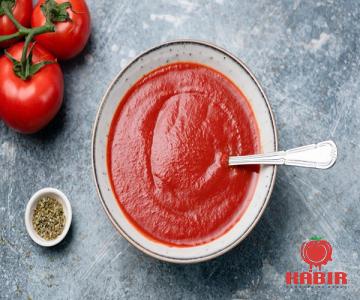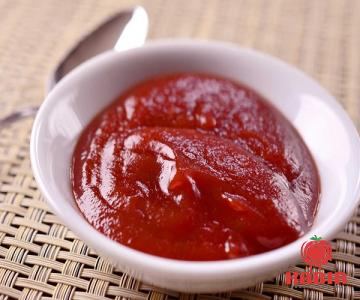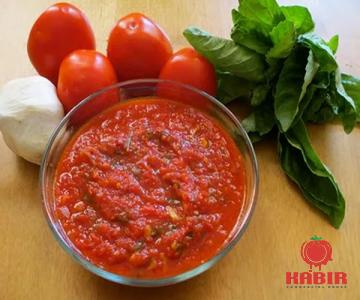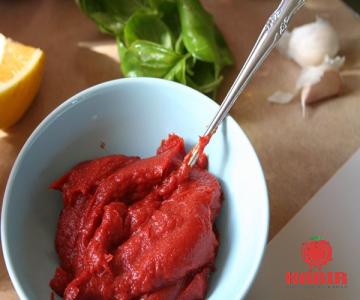Mexico has long been recognized as a leader in the global agricultural industry, particularly in the production of tomatoes. With a favorable climate, ample land resources, and skilled labor, the country has become a key player in the tomato paste market. This article aims to explore the tomato paste industry in Mexico, its production practices, market trends, opportunities, and challenges. Production Practices: The production of tomato paste in Mexico relies on modern agricultural practices, where farmers utilize advanced techniques and technologies. Mexico boasts a wide variety of tomato species, allowing for year-round production.

.
 Additionally, the country primarily employs greenhouse cultivation methods, which enable better control over crop quality and yield. These factors contribute to the consistent supply of high-quality tomatoes, crucial for the production of premium tomato paste. Market Trends: The demand for tomato paste in Mexico has been steadily rising, driven by several factors. Firstly, the country’s rich culinary heritage heavily relies on tomato-based dishes, making tomato paste an indispensable ingredient in Mexican cuisine. Secondly, the increasing popularity of convenience foods, such as fast food and ready-to-eat meals, has led to a surge in demand for processed tomato products like paste. Lastly, the expanding export market presents an opportunity for Mexican tomato paste manufacturers to reach international consumers. Opportunities: The tomato paste industry in Mexico offers numerous opportunities for both local and international businesses.
Additionally, the country primarily employs greenhouse cultivation methods, which enable better control over crop quality and yield. These factors contribute to the consistent supply of high-quality tomatoes, crucial for the production of premium tomato paste. Market Trends: The demand for tomato paste in Mexico has been steadily rising, driven by several factors. Firstly, the country’s rich culinary heritage heavily relies on tomato-based dishes, making tomato paste an indispensable ingredient in Mexican cuisine. Secondly, the increasing popularity of convenience foods, such as fast food and ready-to-eat meals, has led to a surge in demand for processed tomato products like paste. Lastly, the expanding export market presents an opportunity for Mexican tomato paste manufacturers to reach international consumers. Opportunities: The tomato paste industry in Mexico offers numerous opportunities for both local and international businesses.
..
 The domestic market remains robust, with an ever-increasing demand for tomato paste across various segments, including food processing, foodservice, and retail. Furthermore, the export potential of Mexican tomato paste is immense, particularly to nearby regions such as Central and South America, where there is a growing demand for processed tomato products. By leveraging their competitive advantages, such as cost-effective production and proximity to key markets, Mexican manufacturers can tap into these opportunities and expand their market reach. Challenges: Despite the favorable market conditions, the tomato paste industry in Mexico faces certain challenges. One such challenge is the need for continuous innovation and product differentiation to stay ahead of competitors. With a competitive global market, Mexican manufacturers must focus on offering unique value propositions, such as organic or premium quality tomato paste, to attract discerning consumers.
The domestic market remains robust, with an ever-increasing demand for tomato paste across various segments, including food processing, foodservice, and retail. Furthermore, the export potential of Mexican tomato paste is immense, particularly to nearby regions such as Central and South America, where there is a growing demand for processed tomato products. By leveraging their competitive advantages, such as cost-effective production and proximity to key markets, Mexican manufacturers can tap into these opportunities and expand their market reach. Challenges: Despite the favorable market conditions, the tomato paste industry in Mexico faces certain challenges. One such challenge is the need for continuous innovation and product differentiation to stay ahead of competitors. With a competitive global market, Mexican manufacturers must focus on offering unique value propositions, such as organic or premium quality tomato paste, to attract discerning consumers.
…
 Additionally, ensuring a consistent and sustainable supply of tomatoes can be challenging, as adverse weather conditions or disease outbreaks can impact production. Collaborative efforts between farmers, processors, and governmental organizations are crucial in addressing these challenges. Conclusion: The tomato paste industry in Mexico is experiencing steady growth, driven by strong domestic demand and potential overseas markets. Manufacturers in Mexico have the opportunity to capitalize on the country’s favorable agricultural conditions and rich culinary heritage. By staying abreast of market trends, addressing challenges, and embracing innovation, Mexican tomato paste producers can position themselves as leading players in the global market. As the industry continues to evolve, it is essential for businesses to adapt and cater to changing consumer preferences to ensure sustainable growth and success.
Additionally, ensuring a consistent and sustainable supply of tomatoes can be challenging, as adverse weather conditions or disease outbreaks can impact production. Collaborative efforts between farmers, processors, and governmental organizations are crucial in addressing these challenges. Conclusion: The tomato paste industry in Mexico is experiencing steady growth, driven by strong domestic demand and potential overseas markets. Manufacturers in Mexico have the opportunity to capitalize on the country’s favorable agricultural conditions and rich culinary heritage. By staying abreast of market trends, addressing challenges, and embracing innovation, Mexican tomato paste producers can position themselves as leading players in the global market. As the industry continues to evolve, it is essential for businesses to adapt and cater to changing consumer preferences to ensure sustainable growth and success.











Your comment submitted.